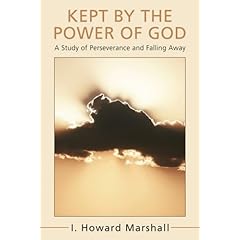 Thanks to Thomas Nelson for the review copy. In The Map, David Murrow, the author of Why Men Hate Going to Church, uses the metaphor of a map, along with a creatively told fictional tale of its discovery, to describe the spiritual journey of a man. He begins with a ten-chapter tale of the map's discovery in an ancient manuscript in a Grecian monastery by the monk Gerasimos, and of his own involvement in the project as a journalist and writer who could popularize the discovery. But things aren't so simple when he discovers he is being pursued by a mysterious group with unclear motives. Someone must want the map for personal gain. David goes to the monastery to meet with Gerasimos, and he is taught by the monk about the journey the map describes. He is then finally introduced to the map.
Thanks to Thomas Nelson for the review copy. In The Map, David Murrow, the author of Why Men Hate Going to Church, uses the metaphor of a map, along with a creatively told fictional tale of its discovery, to describe the spiritual journey of a man. He begins with a ten-chapter tale of the map's discovery in an ancient manuscript in a Grecian monastery by the monk Gerasimos, and of his own involvement in the project as a journalist and writer who could popularize the discovery. But things aren't so simple when he discovers he is being pursued by a mysterious group with unclear motives. Someone must want the map for personal gain. David goes to the monastery to meet with Gerasimos, and he is taught by the monk about the journey the map describes. He is then finally introduced to the map.
The map itself, described in an ancient document entitled "The Three Journeys of Jesus," is actually a key to understanding Jesus own life as depicted in the Gospel of Matthew as three journeys, submission, strength, and sacrifice—three journeys that all men are to emulate in a life of discipleship.
In the second half of the book, following on this interesting fictional account, Murrow fleshes out these three journeys he finds in Matthew's gospel. The first, submission, is found in the early part of the Gospel (chs 1–7). It entails a journey toward the feminine, and is characterized by submission to God. The second is strength, and is found in Matthew 8–25. It is a journey of assertion and strength, a journey toward the masculine. The final journey is sacrifice (Matt 26–28), a journey back in the feminine direction, focused on handing over control, passing on responsibility, training up the next generation.
I found much of value in Murrow's creatively shaped handbook on male discipleship. I think he has indeed picked up three important themes of discipleship and described them well. His assertion that he has found a hidden map in the Gospel of Matthew is more tenuous, I would think, though that doesn't totally undermine the key insights. I also found his description of these stages or journeys in terms of masculine and feminine as a mixed bag. In some senses, it is helpful to see how these stages relate to typical tendencies or traits aligned with one gender, and to warn of the pitfalls that might be typical of especially men, means it has its use. Though in a more absolute way I don't think they were necessary for the book's key insight. In terms of a book directed toward men, and the vision of male discipleship it forms, I think Murrow's book has much value. It is a helpful corrective to some male-directed books that seem to glorify masculine traits and tendencies at the expense of important biblical themes like submission and sacrifice. It also takes a swipe at visions of Jesus (and of the Christian life) that are only meek and mild. So there is no doubt the book has great value in striking out against those two extremes.
In all, I found a few points on which to quibble, but I clearly think Murrow has identified three important themes in the life of the disciple, packaged them creatively with a fictional tale and a helpful map, and directed them well to a male audience. I hope this book is read widely and that it engenders a dialogue about the shape and purpose of the Christian life, especially the Christian life of a man.











